- Home
- C. R. Daems
Tasmanian SFG: Welcome to Hell Page 7
Tasmanian SFG: Welcome to Hell Read online
Page 7
The following week was devoted to specialties. Each one of us had to double as a medic, communications tech, explosive expert, or sniper. Although my father had taught me how to treat minor wounds and some emergency procedures, my interest became explosives and long-range sniping. I became the person who would be called upon to dismantle an explosive device because of my attention to detail and patience, the same skills I would use as a sniper.
For the next six weeks we alternated between combat training, specialty training, and field exercises. The subsequent two weeks were an ongoing test of everything we had learned.
“Tomorrow, you’re to report for duty in your dress uniforms,” the chief said as we finished our exercise that night. “Dismissed.”
“I wonder what’s up,” Slater said, looking around the group.
“Another test, I guess,” Frank said. “Or maybe senior staff coming for an inspection.”
“Maybe they are going to teach us how to march the Tasmanian way,” Avery said.
“Maybe a formal review of some kind,” Foley said.
“I assume that was just a warning that our dress uniforms had better be dressy,” I quipped as we walked toward the barracks. I hoped it wasn’t a formal dismissal of one or more of us. I had become fond of my fellow candidates. And while in the beginning I was testing myself to find where I belonged and would have been satisfied in the Rangers or regular army, today I wanted desperately to be a Tasmanian.
PART TWO
CHAPTER THIRTEEN
Planet: Delphi: Fort Endeavor: Indoctrination
I dressed and followed the others out, not sure what to expect. To my surprise a military-blue bus sat with the front door standing open. A Tasmanian stood there waiting with no discernible expression. He waved toward the bus, and the ten of us entered and took seats.
“What do you think?” Frank whispered to no one in particular as the Tasmanian entered the bus, the bus door closed, and the vehicle headed for the road that led to Fort Shiva’s security gate.
“We didn’t go for a run first, so it might be a Tasmanian holiday,” Paul said, with a lopsided grin.
“If they have a holiday, they would probably make everyone requalify on the obstacle course after a fifty-kilometer run to warm up,” I quipped or at least I hoped it was a quip.
“Doubt it, Luan. It’s not raining out,” Foley said. Before anyone could respond the bus entered Fort Endeaver's security gate and a few minutes later stopped behind a wooden platform. The Tasmanian exited the bus and we followed.
In this area hundreds of Tasmanians were milling about. We looked lost in our contrasting uniforms. The Tasmanians were dressed in their standard dress uniforms while we were in the dress uniforms of our previous units: the candidates all had Ranger uniforms except for me. I wore a standard army uniform. The difference was glaringly obvious. I felt like a sparrow among birds of prey.
The standard army uniform was a dark blue hip-length jacket and pants, white turtleneck pullover, black boots, and black beret. The uniforms had name tags, awards, rank, and unit patches. I wore the standard army uniform but had no medals or rank and my beret was black.
The other candidates wore a standard Ranger uniform which was similar to the army uniform except for the maroon turtleneck shirt, beret, and stripe running down the pant leg. In addition, each Ranger had his medals, awards, and rank he had earned, and his unit’s flash on his beret.
The standard Tasmanian’s uniform was also the same as the army in all respects except they had a white stripe down the pant leg and a Tasmanian-fur flash on the black beret and no awards, rank, or unit patch. The simplicity of the uniform made it startling.
We were directed to a raised platform where Chief Master Sergeant Simon and a tall, wiry man stood. To my surprise, Simon stood in standard Tasmanian uniform with no rank.
Simon stepped up to the microphone and called out, “Attention,” and everyone braced to attention. He turned to us. “Strip out of your uniforms,” he said, to our astonishment. I did as told but felt like my entire body was blushing a scarlet red—even my goose bumps. I must have presented a ridiculous sight standing next to nine tall and muscular men. It was bad enough with my uniform on but without it I must have looked to have lost ten kilo. He then handed each of us a Tasmanian uniform and told us to dress. After we were all dressed the other man stepped up to the microphone.
“As commander of the Tasmanians it is my honor to present to you your new Tasmanian brothers…and for the first time, a sister.” Then one by one he called each of us to the microphone, announced our name, and handed each the coveted Tasmanian beret with its fur flash. I was last in line.
“Jolie Luan,” he said. I stepped forward and he handed me my beret. “Jolie is a tad undersized, but I’ve been told she has a mouth full of razor-sharp teeth. Congratulations, Jolie,” he said and I stepped back into line. “Please welcome your new brothers and sister into the Tasmanian Special Forces Group.” With that a roar of “Welcome” erupted and everyone began approaching the platform. As we left the platform, we were each surrounded by Tasmanians.
“Well, Jolie, how does it feel to be a Tasmanian?” a curly-haired man in his thirties asked as twenty or so waited for an answer.
“A lot warmer with the uniform on,” I said to genuine laughter.
“It’s symbolic of the candidate’s death and rebirth,” the same man said. “Although having a sister this time did make it a bit more spectacular.”
All that day I must have told an abbreviated version of my life over twenty times as I was surrounded by group after group. It was an interesting way to get introduced to one’s new family. Everyone was interested to know the people who would be fighting alongside them and potentially guarding their back. Later that evening, I and the others were dragged to the Tasmanian club for more examination. There I managed to ask some questions of my own.
“I’ve noticed your uniforms don’t have any rank or awards,” I said but it was really a question.
“We’re part of the army but we have our own unique customs,” a man, whose name was Kendall, said. “We have no rank because our assignments are based on need. For each assignment the senior Tasmanian commander selects individuals to command the next lower group who then selects the individuals to command the next lower group who selects the individuals in that group…who selects the individuals who will make up the squad. In a sense we are all eligible for any of those positions. Of course, selections are made based on previous experience and performance. Consequently, on one assignment you may be in charge of a group and on the next a member of a squad. In other words, you’re assigned where you’re needed. Rank doesn’t matter as we are all paid the same based on our years of service with the Tasmanians and we don’t get awards. Your performance is recorded after each assignment and used for your next assignment. Quite frankly no one wants to be in charge. It makes you responsible for your brother’s lives—same pay but more responsibility. So, our uniforms reflect we are Tasmanians and equal.”
“That’s emphasized by the white fur as a beret flash rather than a unit flash—we have no unit. We’re Tasmanians.” Jensen said and added, “The old-earth marines had a motto, Semper Fidelis, ‘Always Faithful.’ Our motto would be Et Anima Una, ‘Of One Mind.’ On assignment or here at home, you fuck with one of us, you fuck with us all.” He laughed. “Shout Devils to me and it will be echoed by every Tasmanian in hearing and every one of them will be racing to answer the call. I saw it happen once while on assignment. Scariest thing I’ve ever seen. Men racing through the streets, some in uniforms and some only half dressed. It looked like sharks drawn to blood.”
“You now have over five hundred brothers to watch your back, sister,” Kendell said to good-natured laughs, raised glasses, and a roar of Devils, which was echoed around the room.
* * *
Over the next couple of months, I and the other new Tasmanians settled into the home base routine for Tasmanians not on assignment. We had sched
uled exercises every other week that involved one unit against another, which could be squads or companies, and that would last two to four days. When not participating on exercises we were assigned duties or participated in special classes meant to sharpen or update our knowledge in our specialty. It turned out that our specialty was one of the selection factors for assignment. Every Tasmanian had a specialty and some had more than one. I had three: my primary was sniper, secondary explosives, and trinary medical. Given the need for a specialty the high priority was chosen. For example, if an explosive or medical specialty were needed, my explosive specialty would be selected. Given a person wasn’t scheduled for deployment, each individual’s work week could vary from five to seven days and six- to twenty-four-hour days. Having three specialties, I was always either on an exercise or in a class. As my primary was sniper, I spent a lot of time at the range with and without a spotter.
“Well, Jolie, how is life treating you?” Smitty asked as I reported for a class on explosives.
“Great. Always something new and exciting happening,” I said.
“I was following orders,” he said, referring to his interrogation which nearly killed me. “A lot of senior people didn’t want you to qualify.”
“I can understand that looking back. I read about the Tasmanians in the recruiter’s office and decided I’d like to be in that group. I was new to Delphi and didn’t understand the long-standing traditions. They should have refused to let me join but someone decided to make an example of me or thought it funny…” I said, thinking back on how naive I had been.
Smitty laughed. “He’s probably been demoted and relegated to cleaning latrines.” He sobered. “Today we are going to be dismantling a variety of bombs…”
It proved an interesting couple of days. His dummy bombs exploded and sprayed a smelly paint over you and anyone close to you if you made a mistake while dismantling it. To make matters worse, you couldn’t change or wash until the class ended. Like all Tasmanian classes and exercises, mistakes had consequences. A reminder that war wasn’t a game and mistakes had a cost to you and your brothers.
* * *
I woke to a knocking on my door. The barracks had four- and two-man rooms. As my one and only concession to being a woman, I was given a two-man room to myself.
“Come in,” I said as I sat up in bed and stretched, realizing it was still dark. Frank rushed in. Modesty was not an issue as I frequently showered when men were present. They now included me in their discussions as if we were all dressed, except for an occasional good-natured quip.
“Jolie, you need to work out more, your muscles are pathetic.” Or their favorite: “You don’t look like a Tasmanian. You look like a girl.” To which I would quip back, “Careful or mommy is going to have to wash out your mouth with soap.” Or “Good thing or I might be mistaken for goofy boy like you.” No one bothered me. I was a Tasmanian, a blood sister. It was a very satisfying feeling.
“I’ve heard we have an assignment on the planet Rocklan. The list has been posted and our entire class has been selected. We’re not all in the same squad or even platoon but we’re all going. Two Tasmanian companies each with five platoons will be accompanying an army brigade consisting of two battalions,” Frank said in a rush. Seconds later Paul and Thomas wandered in.
“Couldn’t be much of an uprising if they are taking you wimps along,” I said, trying to sound bored, but I knew my eyes reflected the excitement I felt.
“I felt the same way when I heard they were taking a girl along,” Gary Foley said as his head peeked into the room. We all laughed. “They just announced roll call for six hundred hours where we will be given our assignments.”
CHAPTER FOURTEEN
Planet: Delphi: Fort Endeavor: Assignments
“How do you want to split up the candidates?” Howard asked. “We have two companies, so we could place five in each. And then one in each of the ten platoons so no two candidates serve in the same platoon.”
The three members of the committee nodded agreement.
“What about the female candidate?” Howard asked.
“Put her in Company One. That unit will be more likely to see the most action. If she’s a potential problem, we will want to know immediately. She’s the first of a kind, so she’s going to be a lightning rod,” he oldest of the three men said.
“That’s the chief’s platoon,” Howard said. “He graduated her.”
“The chief is a Tasmanian. It’s not a question of whether she is a qualified candidate, but whether she and the others are qualified under wartime conditions. This is the last and final phase of their candidacy. Each phase is pass or fail and the last is the only one that counts.”
CHAPTER FIFTEEN
Planet: Delphi: Fort Endeavor: First Assignment
When we arrived at the parade grounds, I found several hundred Tasmanians milling around. Fifteen minutes later the brigade commander arrived and climbed the steps to the platform along with six men. One of the men stepped to the microphone and called “Attention,” and as everyone braced the commander stepped forward.
“At ease. Those of you assembled here today have been selected to visit Rocklan to settle a dispute in the nation of Harari, which is noted for its extensive natural resources to include gem quality stones and rare metals. The peoples of the mountains, called the Highlanders or Hihari, where the mines exist, have had a long dispute with the central government over their share of the profits. So much so that the government ten years ago created an office of Land Management, which established mine inspectors to monitor the output of the mines, required all ore be processed and monitored by the central government inspectors, and established a base price for each product. Five years ago, they stationed an army garrison there to stop the rampart theft of ore and finished products, and illegal mining operations. Two months ago, the Hihari revolted, killing inspectors and army personnel. Less than ten percent managed to escape. The government retaliated by sending a military force to take exclusive control of the mines and processing operations. The invading force incurred over forty percent losses while only managing to penetrate twenty percent of the mountainous land claimed by the Hihari before being stopped. Trapped and unable to establish a reliable resupply operation due to raids, they suffered an additional fifteen percent casualties and the government forces had no choice but to retreat. The Harari government has asked the USP for help and they agreed, because they depend to some extent on the rare minerals mined in Harari. Delphi is sending a brigade of two battalions each consisting of four army companies, two of which will be Tasmanian.” He motioned for the two men to step forward. “I’m appointing Steven Howard and Kurt Muller to command the two Tasmanian companies being sent to Rocklan.” He stepped back and two tall middle-aged men stepped forward.
“Good morning, fellow Tasmanians,” Howard said while scanning the assembled group. His eyes settled on me. “And I’d like to welcome the ten new Tasmanians who survived the Tasmanian school despite Hank’s best efforts to get them to leave, including Jolie Luan, who has taught us not to underestimate women. Jolie succeeded where ninety-eight men who were stronger, taller, and more muscular failed. Welcome, Tasmanian Jolie.” He gave a small head nod, and a roar of Welcome erupted from everywhere. I burned with heat from my face to my toes.
Next, Kurt Muller took the microphone. “Your tablet has your platoon number, designated leader, and the time and place you are to report for your departure briefing. Dismissed.”
“Which platoon are you in, Jolie?” Frank asked as we each reviewed our deployment message.
“Company One, Platoon Three, and Simon is in command,” I said, pleased that it was Simon. For my first assignment I was glad to get someone I knew. It would be one less thing I’d have to adjust to. It appeared they had spread us equally among the two companies—five in each—and among the four platoons in each company so no two of us was in the same platoon or squad. Simon’s platoon had five squads totaling twenty-five Tasmanians. T
he assembly area for the platoons of Company One was outside the Tasmanian school barracks in one hour, so Frank, Paul, Thomas, and I began walking in that direction.
“I can’t wait to get going,” Paul said, his voice an octave higher with excitement. “I felt special being a Ranger but always envied the Tasmanians…”
“And now you are one,” Frank chimed in.
“What about you, Jolie?” Thomas asked.
“Another test,” I said, deep in thought.
“Test?” all three asked almost together.
“We aren’t really Tasmanians yet—” I began but almost ran into Frank as all four abruptly stopped and stood staring at me with frowns on their faces.
“What are we?” Thomas asked before anyone else could, and I heard yeah mumbled from the other three.
“We are on probation until we’ve proven ourselves in combat. How we perform under fire—”
“We were in the Rangers and we’ve all had assignments on Delphi,” Frank said, his tone and facial expression indignant.
“You admire the Tasmanians because you view them as the best of the best. They will be evaluating us by that standard. Can they trust us to guard their back, to be as deadly as them, to follow our lead?”
“Follow our lead?” Paul asked. “We’re not in command?”
“Unless I’m wrong, I think one of the qualities expected of a Tasmanian is to think, to see opportunities, and to act. Not independently or to ignore orders, but to ensure the objectives are achieved and lives saved.” I thought many of our tests in the Tasmanian school were designed to test our ability to think. They don’t want mindless soldiers. The army has enough of them.” The rest of the walk was made in silence.

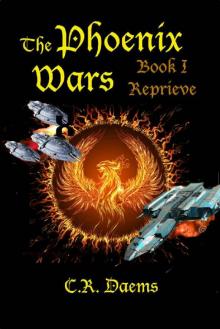 The Phoenix Wars: Book I, Reprieve
The Phoenix Wars: Book I, Reprieve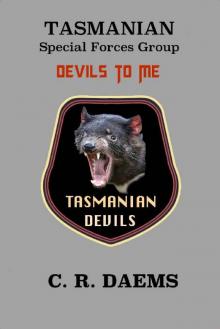 Tasmanian SFG, Book II: Devils to Me (Tasmanian series 2)
Tasmanian SFG, Book II: Devils to Me (Tasmanian series 2) The Red Admiral
The Red Admiral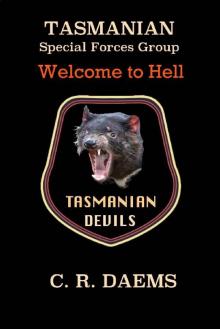 Tasmanian SFG: Welcome to Hell
Tasmanian SFG: Welcome to Hell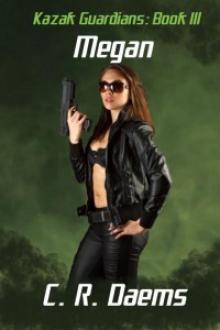 Megan
Megan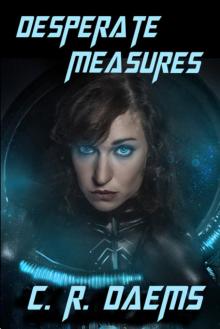 Desperate Measures: The Issog
Desperate Measures: The Issog Red Angel: Coup d'etat (Red Angel Series Book 5)
Red Angel: Coup d'etat (Red Angel Series Book 5)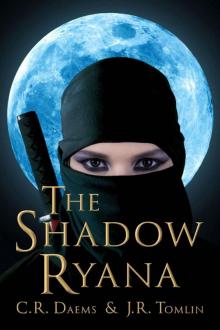 The Shadow Ryana (The Shadow Sisters Book 1)
The Shadow Ryana (The Shadow Sisters Book 1) Riss Series 5: The Riss Challenge
Riss Series 5: The Riss Challenge Red Angel: Book III: Hijackers
Red Angel: Book III: Hijackers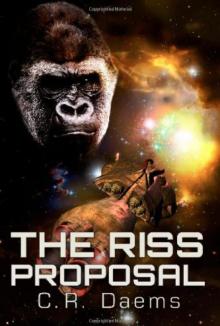 The Riss Proposal: Book II in the Riss Series (Volume 2)
The Riss Proposal: Book II in the Riss Series (Volume 2)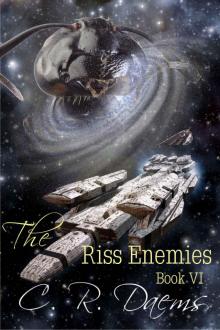 The Riss Enemies: Book VI (The Riss Series 6)
The Riss Enemies: Book VI (The Riss Series 6) Hijackers
Hijackers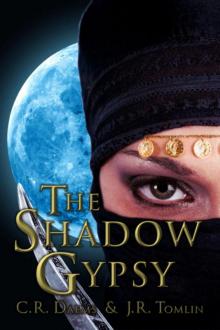 The Shadow Gypsy (The Shadow Sisters)
The Shadow Gypsy (The Shadow Sisters) The Seer Renee
The Seer Renee Kazak Guardians: Book III: Megan (Kazak Guardians Series 3)
Kazak Guardians: Book III: Megan (Kazak Guardians Series 3)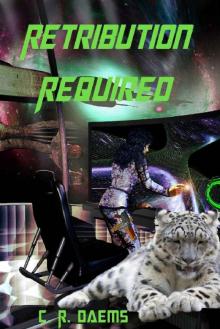 Retribution Required
Retribution Required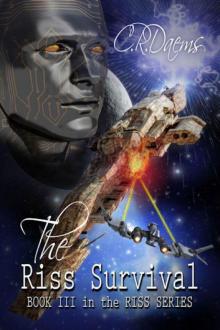 Riss Series 3: The Riss Survival
Riss Series 3: The Riss Survival The Riss Gamble
The Riss Gamble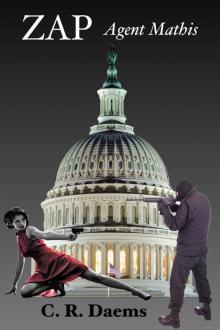 ZAP Agent Mathis
ZAP Agent Mathis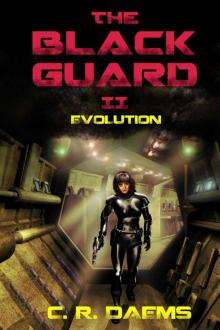 The Black Guard: Book II: Evolution (Black Guard Series 2)
The Black Guard: Book II: Evolution (Black Guard Series 2)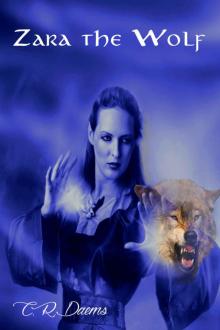 Zara the Wolf
Zara the Wolf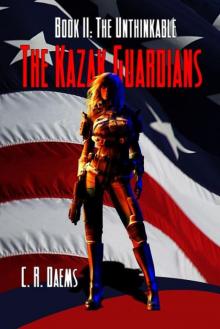 C.R. Daems - Kazak 2 - The Unthinkable
C.R. Daems - Kazak 2 - The Unthinkable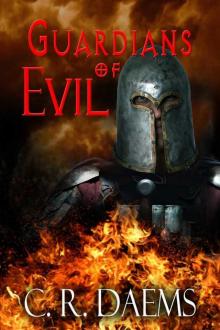 Guardians of Evil
Guardians of Evil Red Angel: Book II: Raiders (Red Angel Series 2)
Red Angel: Book II: Raiders (Red Angel Series 2)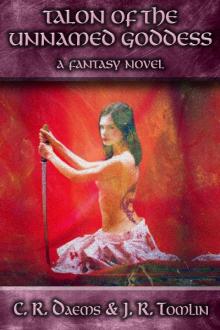 Talon of the Unnamed Goddess, a Fantasy Adventure
Talon of the Unnamed Goddess, a Fantasy Adventure Red Angel
Red Angel Women of Power
Women of Power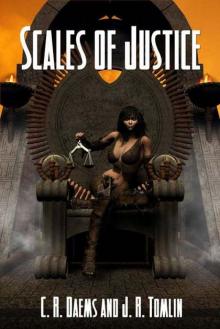 Scales Of Justice
Scales Of Justice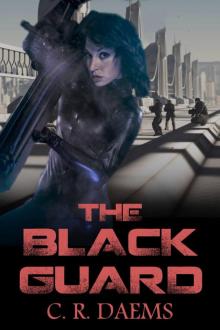 The Black Guard
The Black Guard